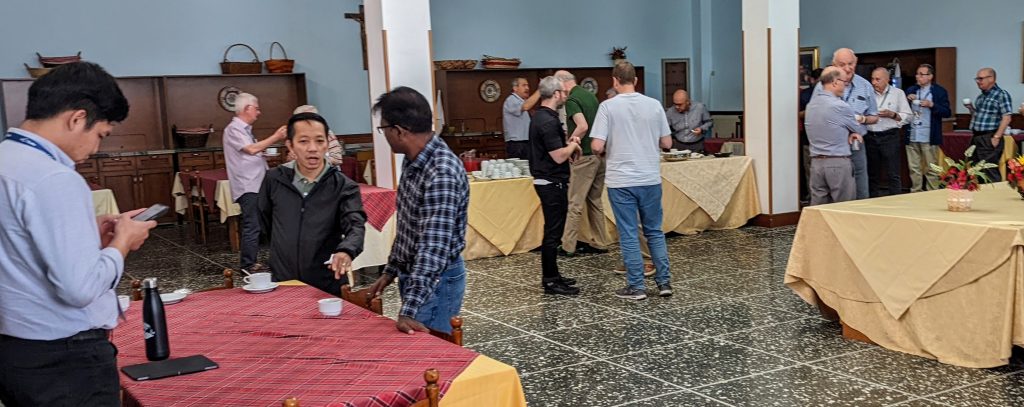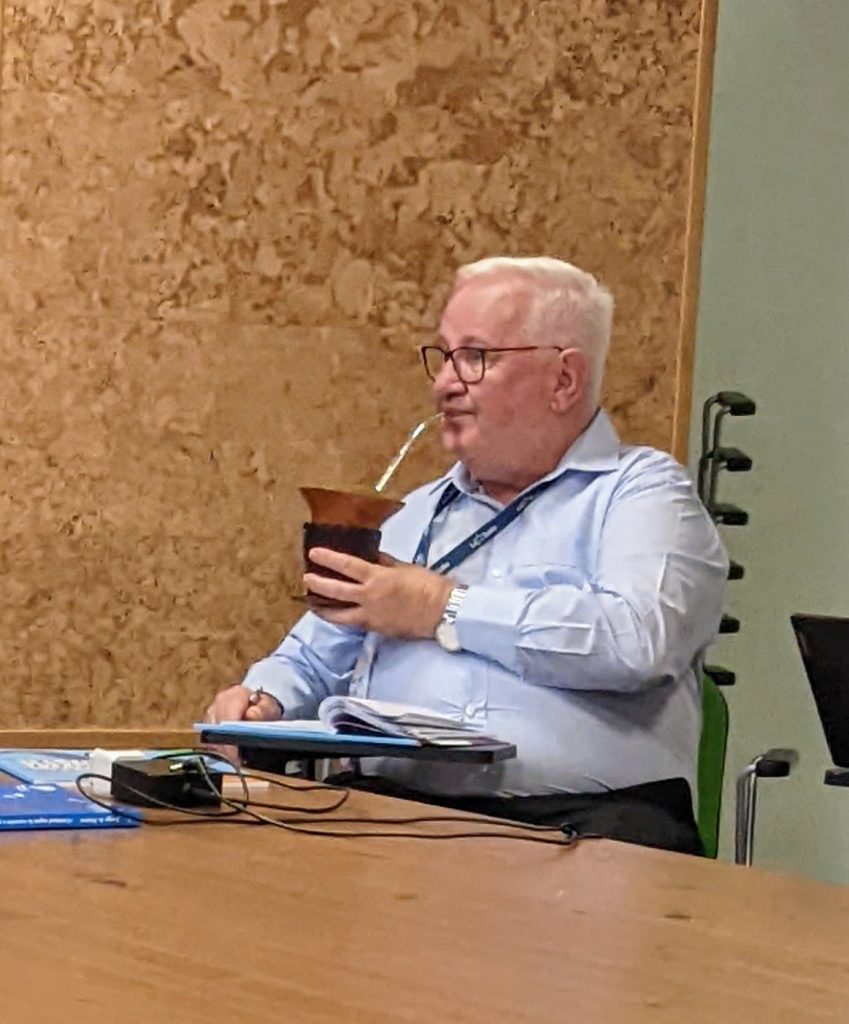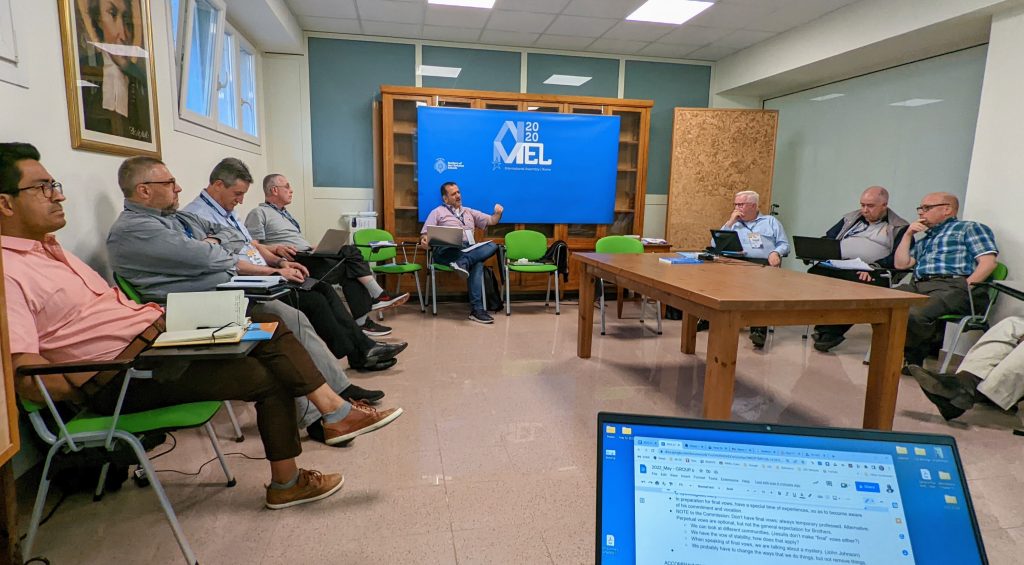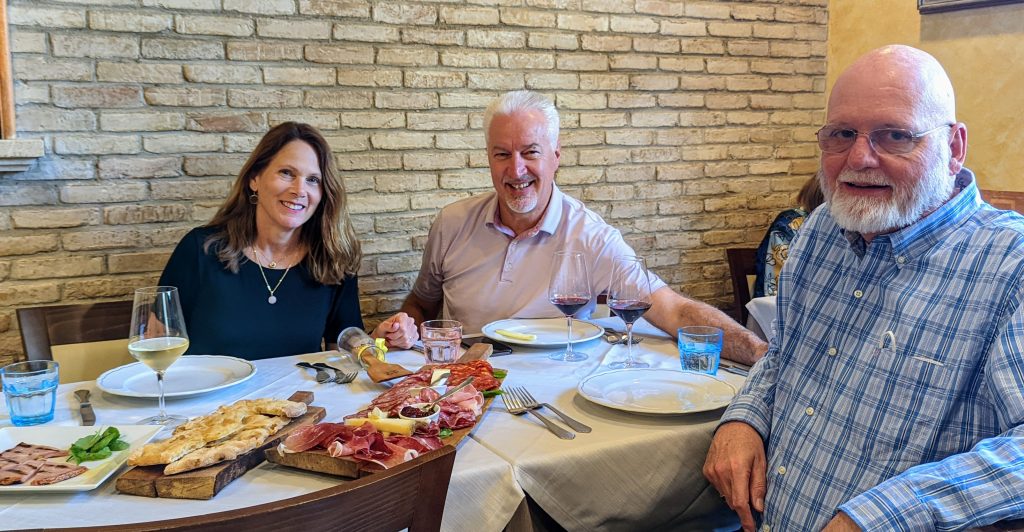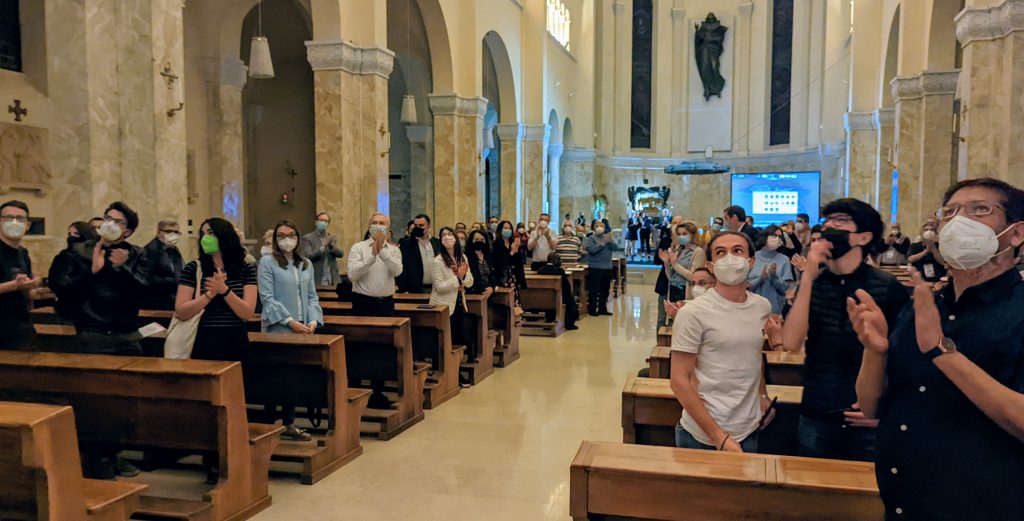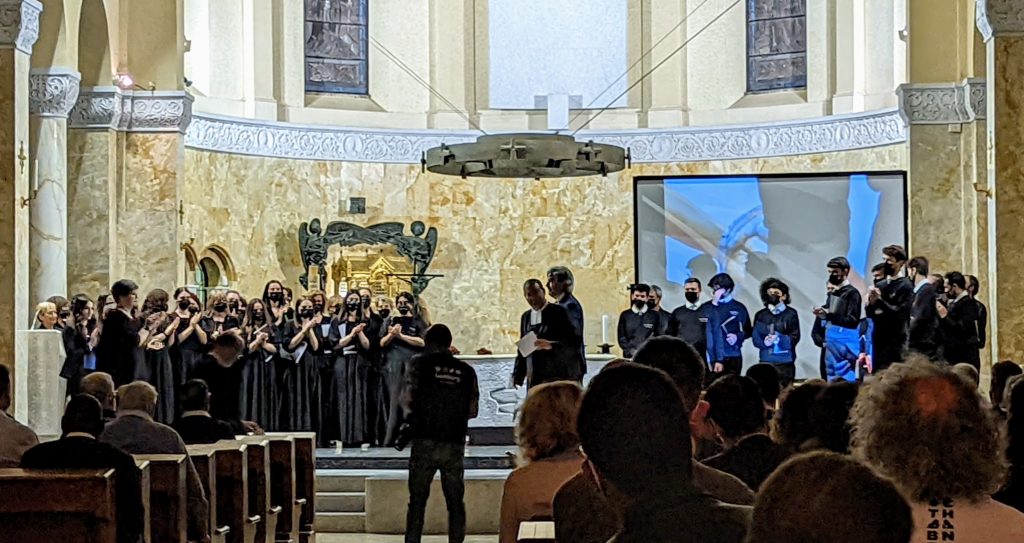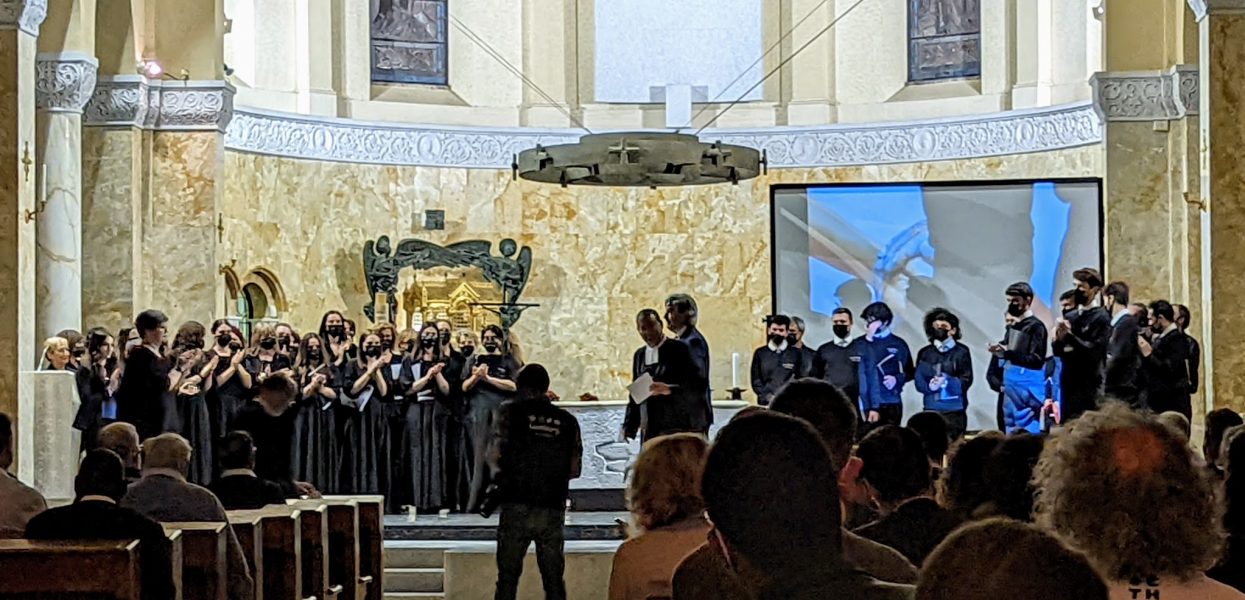This was the first full day for the « transformative paths » (interest groups) to meet and hammer out their specific proposals for the General Chapter assembly to consider in a day or two. The group that I was assigned to, Vocations and Accompaniment, met in one of the rooms in the basement of the Casa Generalizia. Since I had volunteered to be the secretary, I asked for a projector so that any texts that we created could be projected onto the wall. As it turned out, there was a projector in the room that had been attached to the ceiling, but I hadn’t seen it; a good example of the fact that the things you need are often right in front of you.
At breakfast in the large dining room, a WhatsApp text was shared indicating that today was the birthday of Br. David Hawke, quickly confirmed by the spontaneously singing of « Happy Birthday » at the table where he happened to be seated, joined in by everyone in the room. Another nice indication of the positive spirit of the group and the thus-far relaxed atmosphere of our gatherings.
At 9:00 am we resumed our work in small « Transformative Pathways » groups. It’s good that we had a projector in the room for taking notes and sharing conclusions or draft of possible documents. It’s much easier to work with a text projected to everyone than relying on oral memory.
For most of the morning, we shared our thoughts about the Brothers’ vocation and the challenges of proper accompaniment in supporting vocational discernment, especially with young Brothers in communities. Some highlights of the discussion:
- One Brother spoke about the importance of our vocation because of its impact on our lay Partners. They value it. He had been the only Brother in a school in Europe and found that the students, teachers, and parents really valued his presence. We need to give ourselves enough credit and affirmation to embrace the vocation.
- It is important that Brothers are seen. People cannot join what they cannot see. Plus, Brothers are somewhat handicapped by the fact that they tend to embrace humility, which is also a general characteristic of teachers in general.
- In one European country, Brothers are divided about public expressions of faith, such as wearing a small cross or wearing the robe. There was the illustration of one Brother who was proud of the fact that he taught in a public school and that no one knew that he was a Brother. But students usually know if a teacher is married, etc., so why wouldn’t we be witnesses to our religious vocation?
- It is important to think about the theology of religious life as Brothers. More work should be done in this area, especially in the face of clericalism and a synodal church.
- The very helpful input of Circular 475 was mentioned several times, and I arranged via email that copies in Spanish and English be delivered to the room during our morning conversations.
- Two things were finally highlighted: Brothers have to reaffirm their vocation for themselves, and Brothers have to be able to speak about their vocation to others.
- There was a rather long conversation about doing something that would be a paradigm shift and would lead to Brothers and others to re-examine the nature of their commitment and priorities. In the end, the idea didn’t rise to the level of a proposition, but the conversation was rich. The primary thought was well represented by one of the notes / suggestions that had been sent to the General Chapter: « Reincorporating to our Institute the possibility to receive Brothers who profess temporary vows and renew them any number of times and even Brothers who do not profess vows per se but are committed to sharing our life and mission for a definite period of time. » The basic idea was not to compel perpetual, or final, vows but to provide the option for Brothers to continually renew their vows, as is the case in other religious institutes. Long discussion … Arguments on both sides … No clear resolutions. As for myself, I favored the idea because it would 1) compel Brothers to think about what it means to make a commitment to the Lasallian mission, 2) begin to introduce a way of being associated that does not involve « Final » vows, and 3) bring the Brothers more closely to our Partners in terms of their variety of associations, all of them serious and personal and strong. But the idea was just a bit too radical for the group, and it probably would have met stiff opposition in the general assembly. So much for « bold ».
When we broke for lunch, I met up with a couple from Denver, Bill and Cherie Gilbert, who had come to Rome for a short vacation and the start of a cruise. I had met Bill at meetings of the ABC (Association of Board Chairs) in the Bay Area, and he had been helpful on one of the projects that I’d taken on here in Rome. So it was nice to see them, show them around the house, and go with them to Ostia Romana, a very nice restaurant that was within walking distance. The whole thing was a very good break from the intensity of the General Chapter activities.
I returned to our 3:00 pm « Transformative Pathways » group at about 3:40 pm, since the lunch had lasted a little longer than anticipated. But the group was doing just fine. They were working on a draft of their text, which was shaped by design around a « We recognize that … » statement, followed by a consequent « We are called to … » statement, followed by a set of three to five « commitments » statements, each had to begin with a verb that brought to action what had been said earlier. It took a while, but we could finally get down to brass tacks and write down what we wanted the new leadership to do in the next seven years.
It would be inappropriate – and presumptive – to share those drafts at this time, but what I can say is that they were thoughtfully massaged over a period of several hours and carefully nuanced to be as clear and direct as possible. The focus was on having ways that vocation ministry and accompaniment for both Brothers and Lasallian partners (we really do need a new word here) was intentional, well supported, fairly distributed, and intentionally executed. During the afternoon break, I wrote the initial drafts of two more commitments – beyond the three that they had begun with – and subsequently we worked on the final wording and nuances. It was interesting to me that in some cases, the Spanish versions were more clearly stated than the English ones. And even though Br. Jorge and Br. William – the de facto participant translators for us – were away at an organizational pre-planned meeting, we were able to communicate well enough to finish our work at around 6:00 pm.
Mass in language groups followed at 6:45 pm. The English group was in the Trinity Chapel just down the hall from Room 33 where we had been meeting. Aferwards, a small group went to the Den for some debriefing and socializing. Several stayed there through dinner, including me, solving the problems of the Institute, and I headed to my room at about 9:30 pm, having forgotten that there would be a musical performance in the Sanctuary. Some beautiful music, choir and organ, was echoed through the corridors, and eventually I went into the chapel to catch the very end of the performance. A good way to end the day. Applause all around.
